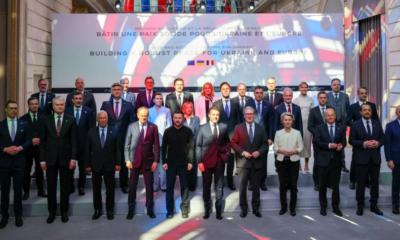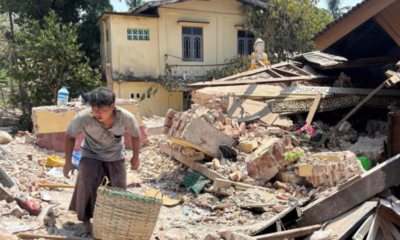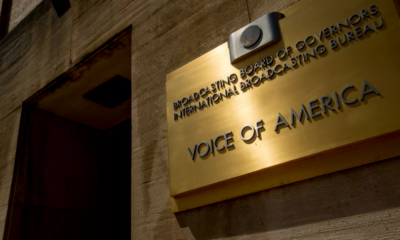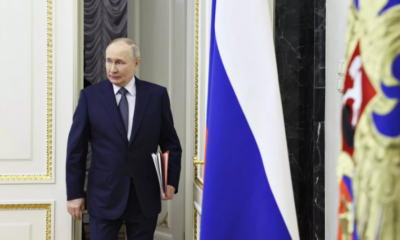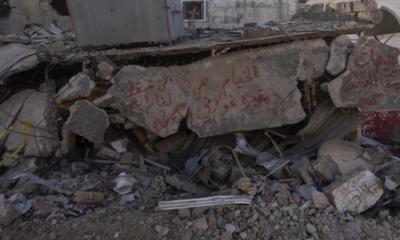News
US Approves $2 Billion Arms Sales to Taiwan Amid Rising Tensions with China
The United States has authorized a significant arms package valued at $2 billion for Taiwan, which includes the first-ever delivery of an advanced surface-to-air missile defense system to the self-governing island. This move, which has prompted sharp criticism from China, comes as Taiwan intensifies its defense measures amid increasing military threats from Beijing.
Taiwan’s presidential office expressed gratitude to Washington for the approval of the arms sales on Saturday. Under the leadership of newly elected President Lai Ching-te, Taiwan has been actively bolstering its defense capabilities in response to China’s escalating military maneuvers. Notably, just last week, Beijing conducted military exercises encircling Taiwan for the second time since Lai took office in May.
As Taiwan’s strongest unofficial ally, the United States is legally obligated to provide the island with the means to defend itself. “Strengthening Taiwan’s self-defense capabilities is the foundation for maintaining regional stability,” said Karen Kuo, spokesperson for Taiwan’s presidential office.
However, China swiftly condemned the arms sales, asserting that they infringe upon its sovereignty and security interests, further straining US-China relations. “China strongly condemns and firmly opposes this and has lodged serious protests with the US,” a spokesperson for the Chinese Foreign Ministry stated. The statement also warned that China would take “resolute countermeasures” to defend its national sovereignty and territorial integrity.
The proposed arms package includes three National Advanced Surface-to-Air Missile Systems (NASAMS) and associated equipment, valued at approximately $1.16 billion, according to the US State Department’s Bureau of Political-Military Affairs. Additionally, the package encompasses radar systems estimated at $828 million. Taiwan’s Defense Ministry highlighted that the NASAMS system, which has been battle-tested in Ukraine, will significantly enhance the island’s air defense capabilities.
Chinese military officials indicated that last week’s war games were designed to practice the “sealing off of key ports and key areas” surrounding Taiwan. Taiwan reported a record count of 153 Chinese aircraft, along with 14 navy vessels and 12 government ships, encroaching on its air and maritime space.
The heightened military activities and the recent arms sales are likely to exacerbate tensions in the region, where the balance of power remains delicate. Analysts suggest that Taiwan’s continued military enhancements, coupled with US support, could lead to further provocations from China, as Beijing remains adamant about asserting its claims over Taiwan.
As the situation unfolds, both Taiwan and the United States reaffirm their commitment to maintaining regional stability and enhancing defense readiness in the face of mounting challenges from China.
News
Europe Forms ‘Coalition of the Willing’ to Support Ukraine Amid Uncertainty Over U.S. Role
European leaders have officially launched the “Coalition of the Willing,” a multinational effort led by the United Kingdom and France to support Ukraine in its ongoing war with Russia. The coalition, formed in response to shifting global diplomacy and concerns over Russia’s expansionist agenda, aims to ensure Ukraine’s sovereignty and prevent further escalation in the region.
A Response to Trump-Putin Negotiations
The formation of the coalition gained urgency following a surprise phone call between former U.S. President Donald Trump and Russian President Vladimir Putin on February 12. The call, which took place without prior consultation with European allies, raised alarms across the continent, prompting European leaders to take a more proactive role in shaping the future of the conflict.
Since then, multiple high-level summits have been held, with French President Emmanuel Macron and UK Prime Minister Keir Starmer spearheading the initiative. “Our goal is clear: to secure peace,” Macron stated. “To do this, we must put Ukraine in the best possible position to negotiate and ensure a lasting peace for all Europeans.”
Who Is Part of the Coalition?
The coalition has grown rapidly, now including 33 delegations from across Europe and beyond. Leaders from Germany, Italy, Spain, Poland, Sweden, and other EU nations have joined, alongside representatives from NATO and the European Commission. Notably, Turkey, Australia, and Canada have also taken part in discussions.
However, some key countries remain absent. Austria and Malta have declined participation due to their neutral status, while Hungary and Slovakia, both NATO members, have resisted military support for Ukraine. The United States has not formally joined the coalition, though European leaders remain hopeful that Washington will provide some form of assistance, particularly in intelligence sharing and air defense.
Key Objectives of the Coalition
The coalition has outlined three main areas of focus:
-
Military Support for Ukraine – European nations have pledged continued military aid, including artillery, air defense systems, drones, and training programs to strengthen Ukraine’s armed forces.
-
Deployment of a ‘Reassurance Force’ – A new security force, composed of Western troops, will be stationed in Ukraine at key locations such as cities, ports, and power plants. The goal is to deter Russian aggression rather than engage in frontline combat. France and the UK have already committed soldiers, with Sweden, Denmark, and Belgium considering participation.
-
Strengthening European Defense Capabilities – The European Commission has proposed an €800 billion investment plan to enhance Europe’s defense industry, with Ukraine set to benefit from these funds.
Uncertainty Over U.S. Involvement
While European leaders have made diplomatic efforts to engage the U.S., there is little clarity on whether Washington will actively support the coalition. Trump’s administration has hinted at reducing American troop presence in Europe, raising concerns about long-term transatlantic security commitments.
Despite this, Starmer remains optimistic. “This is a force designed to deter and send a message to Putin that this peace deal will be defended,” he stated.
Next Steps
The coalition is now working to finalize details of the reassurance force, including troop numbers, locations, and operational structures. Ukrainian President Volodymyr Zelenskyy has invited military representatives to Kyiv to begin planning, with a follow-up summit expected in the coming weeks.
With Europe taking the lead, the coalition marks a significant shift in the West’s approach to the war, signaling that European nations are prepared to act independently if necessary to safeguard Ukraine’s future.
News
Myanmar Struck by Aftershocks as Earthquake Death Toll Rises
News
Federal Judge Blocks Trump Administration’s Effort to Dismantle Voice of America
-

 Business10 months ago
Business10 months agoSaudi Arabia’s Model for Sustainable Aviation Practices
-

 Business10 months ago
Business10 months agoRecent Developments in Small Business Taxes
-

 Politics10 months ago
Politics10 months agoWho was Ebrahim Raisi and his status in Iranian Politics?
-

 Business9 months ago
Business9 months agoCarrectly: Revolutionizing Car Care in Chicago
-

 Business9 months ago
Business9 months agoSaudi Arabia: Foreign Direct Investment Rises by 5.6% in Q1
-

 Technology10 months ago
Technology10 months agoComparing Apple Vision Pro and Meta Quest 3
-

 Politics10 months ago
Politics10 months agoIndonesia and Malaysia Call for Israel’s Compliance with ICJ Ruling on Gaza Offensive
-

 Technology10 months ago
Technology10 months agoRecent Developments in AI Ethics in America

